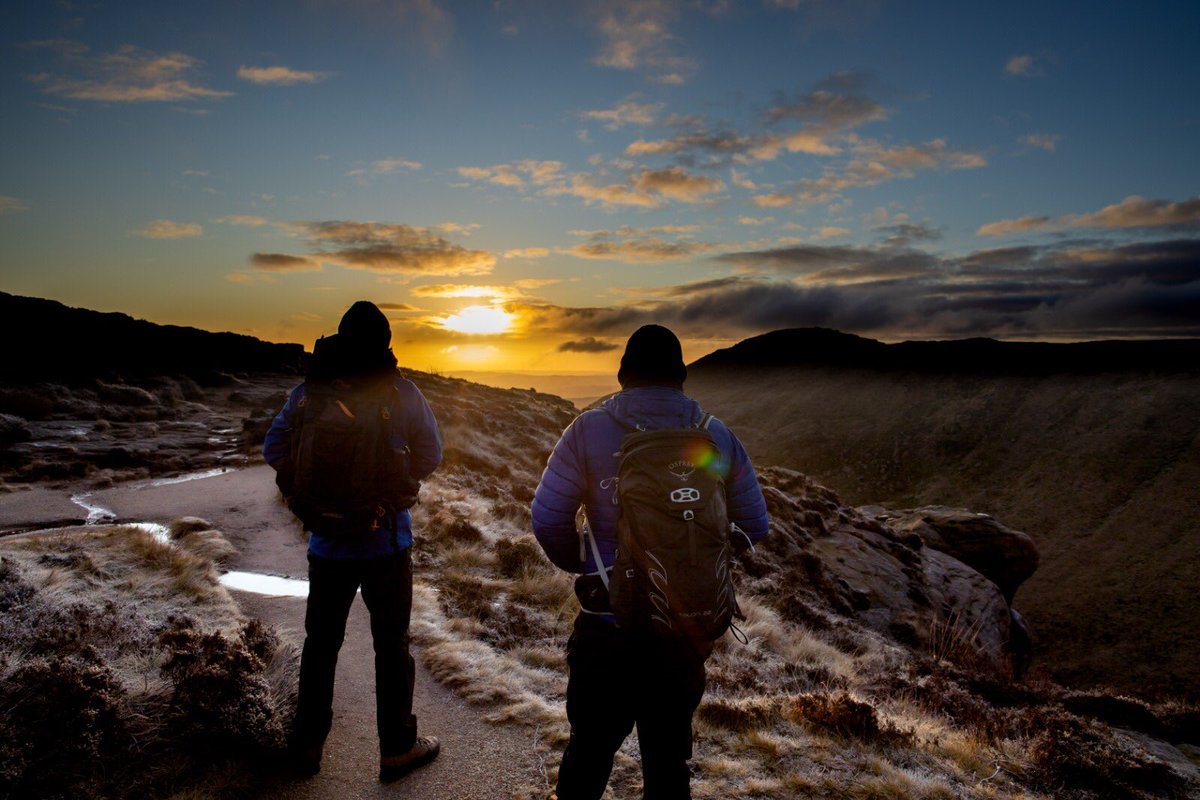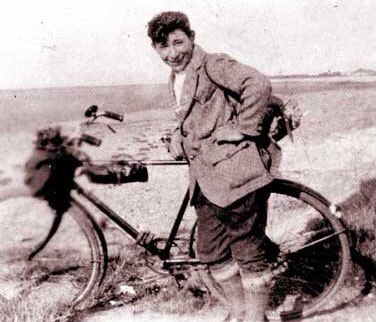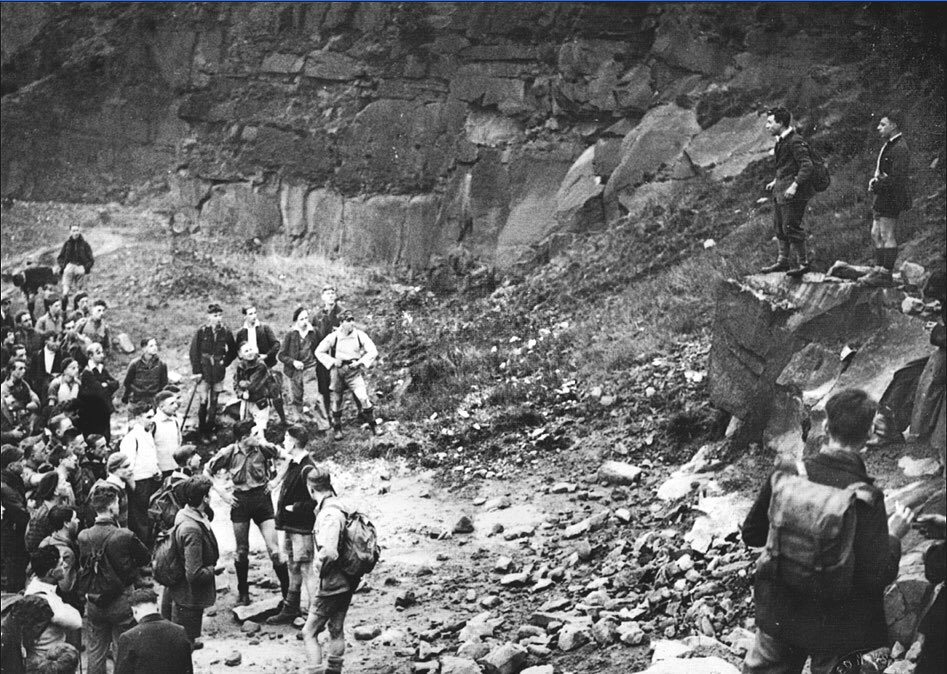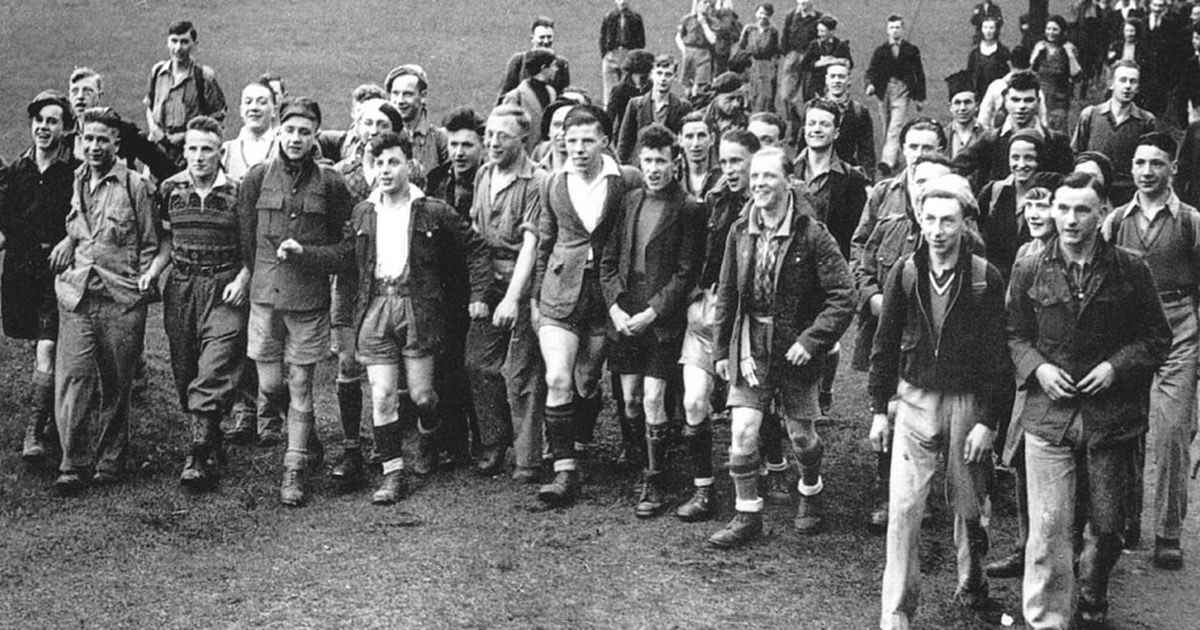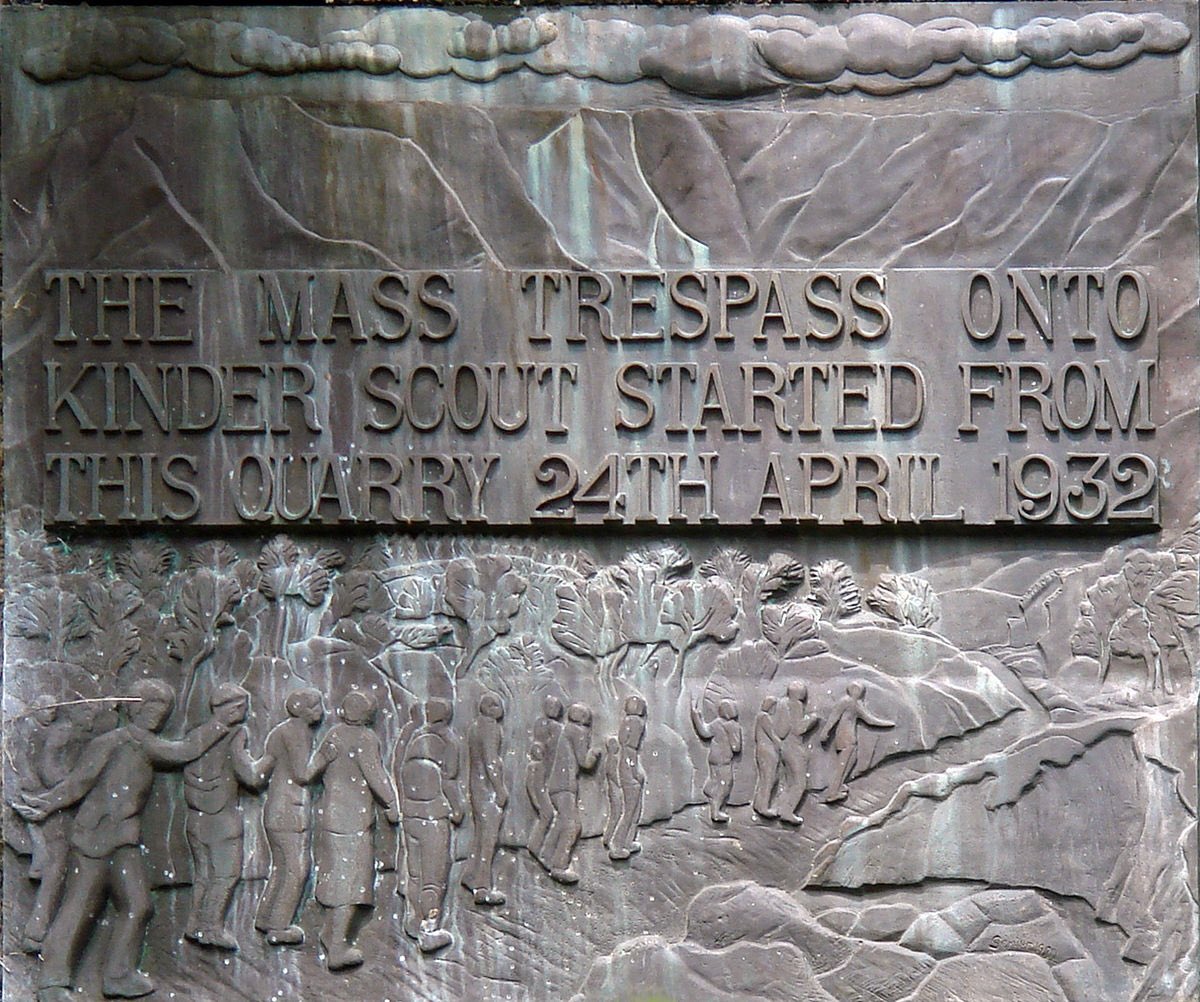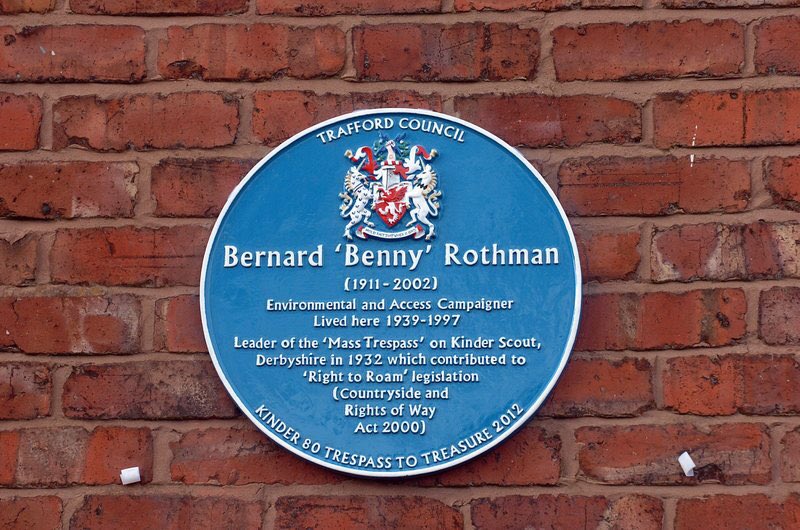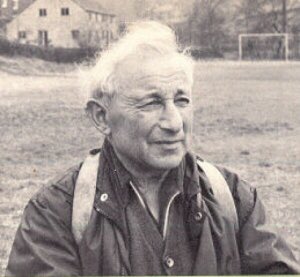This Friday I would’ve been leading a @freshwalks group on an entire 30km loop of Kinder Scout to commemorate the anniversary of the legendary Mass Trespass (24 April 1932).
Given the walk has unfortunately been postponed I wouldn’t want to let the magnificent exploits of one of Manchester’s finest sons and working class hero Bernard (Benny) Rothman pass without recognition. Moreso now than ever, given our restricted access to the countryside.
Benny Rothman (1 June 1911 – 23 January 2002) was born in Cheetham Hill, Manchester, into a Jewish family who had come from Romania at the turn of the century. Benny was the middle of five children.  https://abs.twimg.com/emoji/v2/... draggable="false" alt="🐝" title="Honeybee" aria-label="Emoji: Honeybee">
https://abs.twimg.com/emoji/v2/... draggable="false" alt="🐝" title="Honeybee" aria-label="Emoji: Honeybee"> https://abs.twimg.com/emoji/v2/... draggable="false" alt="🇷🇴" title="Flag of Romania" aria-label="Emoji: Flag of Romania">
https://abs.twimg.com/emoji/v2/... draggable="false" alt="🇷🇴" title="Flag of Romania" aria-label="Emoji: Flag of Romania">
Rothman& #39;s poor family circumstances - his father died when he was 12 - dictated he start work at the earliest opportunity, aged 14, rather than take full advantage of a scholarship he had won at Manchester’s Central High School for boys.
Rothman and his young pals knew little of life outside the crowded, squalid environment of Cheetham, a densely populated working class district north of town. The dark, satanic mills of industrial Manchester a gloomy backdrop with little sense of a countryside beyond.
But that countryside was the only way to find fresh air and to escape desperate living conditions. Typically by train as queues of ramblers would stretch down London Rd station approach on a Sunday morning as the sound of nailed boots rattled across platforms.
The Enclosures Act imposed on the public a century earlier had confiscated common land and handed it in parcels to rich landowners. So much prime countryside was off limits to ordinary folk. It was little wonder Mancunians gazed up in awe at the likes of Bleaklow & Kinder Scout.
In the summer of 1925, Rothman left inner city Manchester, cycling (on a bike made from spare parts) to North Wales and ascended Snowdon with a 6d map from Woolworths: "I was the only person up there. It just hit me, that great open view with the sea all around."
In 1928, when working as a motor trade apprentice in Deansgate, a Scottish mechanic, Bill Donne, invited Rothman to economic debates held at the Clarion Cafe on Market St attended by various Trotskyists, Independent Labour Party members, socialists and communists.
By 1931, a politically engaged Rothman was a member of the Young Communist League and would help establish a group of the British Workers Sports Federation (BWSF) becoming its Northern secretary. Benny would organise popular Sunday rambles and camping.
Organised on a shoestring budget, using army surplus equipment from WW1, they mainly attracted Manchester& #39;s poor and unemployed youth. It was around campfires that stories were shared about the historical theft of the moors and the sheer injustice.
After all, millions of acres of common land, used by Britain’s rural population to graze cattle and grow crops, had been privatised. Never mind access to leisure and general matters of freedom, these communities had been robbed of their livelihoods and way of life.
The first parliamentary demand for the “right to roam” was made in 1884. It was unsuccessful, as were many future attempts.
Meanwhile, in 1932 it was time for a younger generation to step up the campaign for access to countryside and become more aggressive in their actions.
Meanwhile, in 1932 it was time for a younger generation to step up the campaign for access to countryside and become more aggressive in their actions.
The plans for Mass Trespass evolved from an incident when the London faction of BWSF were camping at Rowarth and went for a ramble on Bleaklow. At Yellowslacks Brook, the group, led by local guide, Rothman, were threatened by a group of gamekeepers.
"It wasn’t at all unusual for ramblers to get very badly beaten by them” Rothman recalled "and of course, if you were working class there was no redress. Back at camp we agreed that if, instead of six or seven, there& #39;d been 40 or 50 of us, they wouldn& #39;t have been able to do it."
The Mass Trespass eventually took place on Kinder Scout on April 24 1932, following a rally at the quarry on Kinder Road, Hayfield, which is now commemorated by a plaque. The intended speaker dropped out at the sight of a police presence of 200 men, and Rothman stepped up.
Benny criticised the official rambling movement for inaction and insisted more fight would be needed to win concessions for the working classes. 500 people then marched on Kinder Scout - the highest part in the Peak District, across which there was then no public right of way.
The event turned into a near riot, and five participants, including Rothman, were arrested and put on trial. Witnesses from the police and the water board - which owned some of Kinder and leased it for shooting - testified and Rothman received a four-month prison sentence.
This caused further pressure for working people’s access rights to areas of open country. As public awareness of the campaign increased, its popularity grew and more and more people became involved in the subsequent trespasses which followed. Rothman & co had started a movement.
However, it wasn’t until the election of the next Labour government that the cause saw progress. In Clement Attlee’s post-war administration of 1945, the ramblers at last had a government which shared their desire for reform of landowners’ rights as against those of the public.
A National Parks Commission was established in July 1945, and in 1949, the National Parks and Countryside Act was passed by Parliament. Two years later, in 1951, the UK’s first national park @peakdistrict was formally born. Others would follow.
Many years later, in 1979, his sense of achievement was shattered by new PM, Margaret Thatcher& #39;s policy on the environment and access to it. Rothman campaigned fiercely against Tory countryside legislation with an energy which astonished people 40 or 50 years younger.
Whilst more national parks came into being over the years, and further access agreements were negotiated with estate owners, it wasn’t until the 1997 Labour government introduced the Countryside and Rights of Way Act that the right to roam was enshrined. https://www.thebmc.co.uk/crowact ">https://www.thebmc.co.uk/crowact&q...
That it took so long for this country to recognise public access rights to open countryside is shocking - but not surprising given the historic power and influence of landowners in our democracy.
Benny Rothman’s role in establishing this freedom should never be underestimated.
Benny Rothman’s role in establishing this freedom should never be underestimated.

 Read on Twitter
Read on Twitter